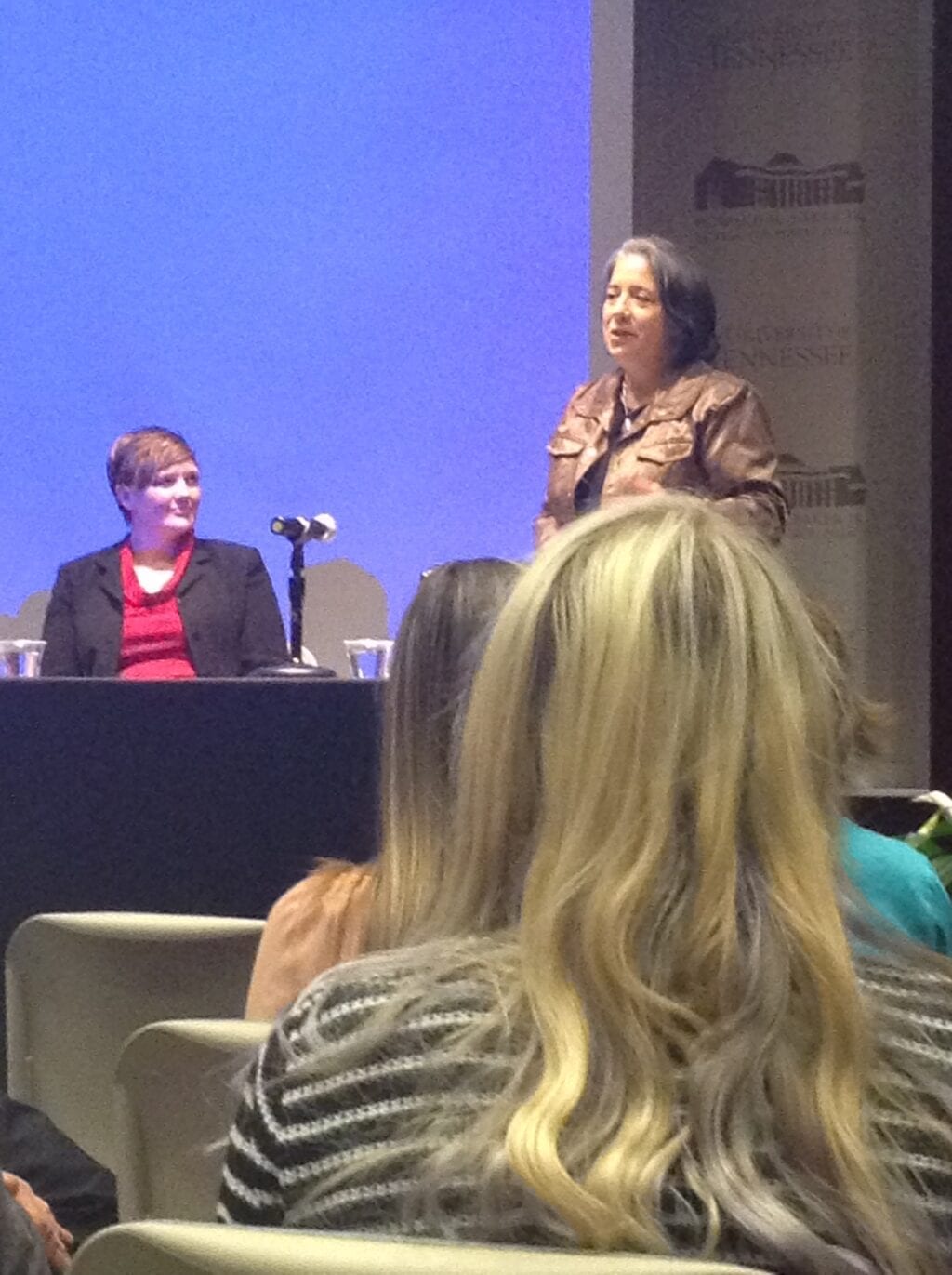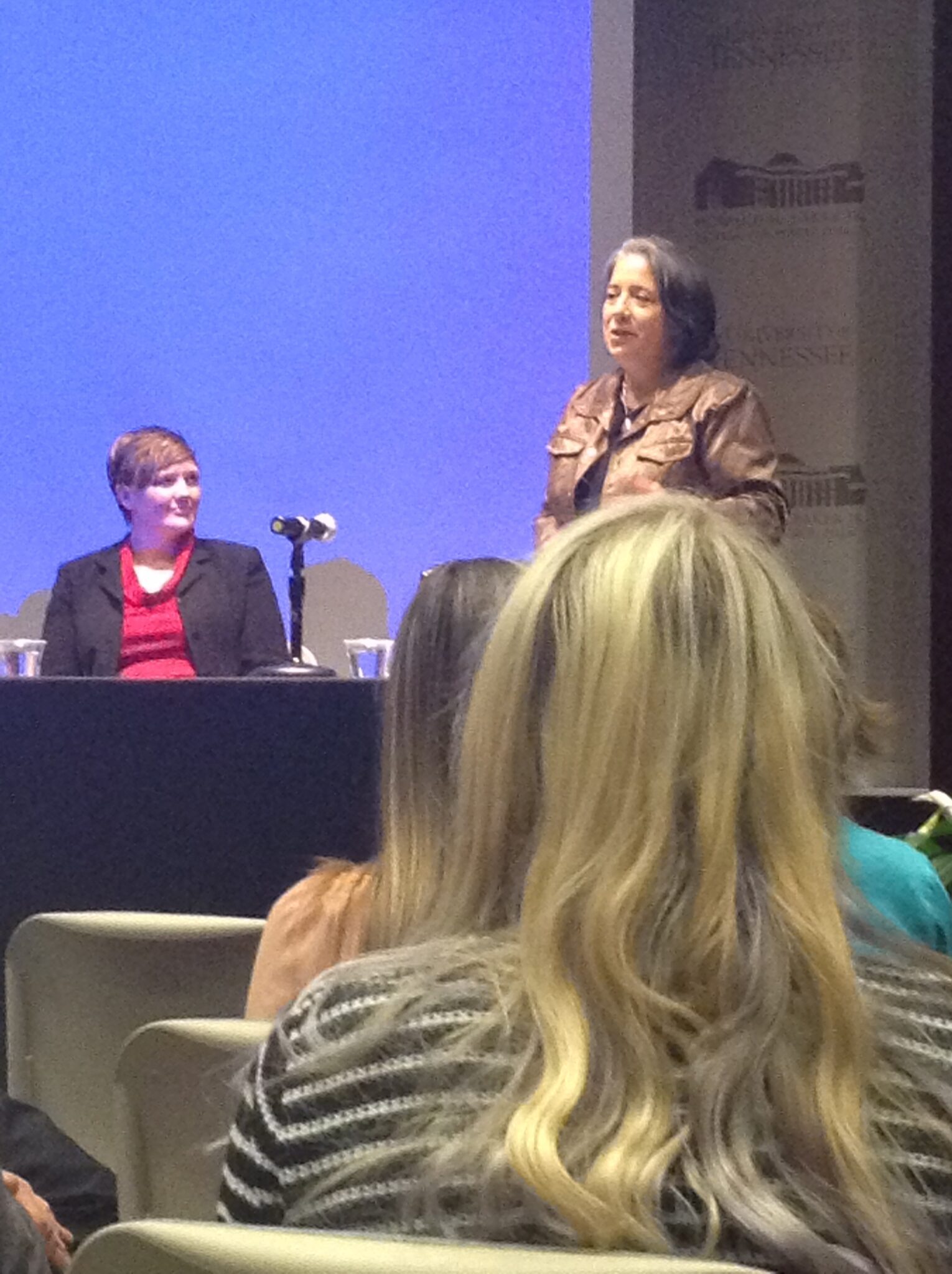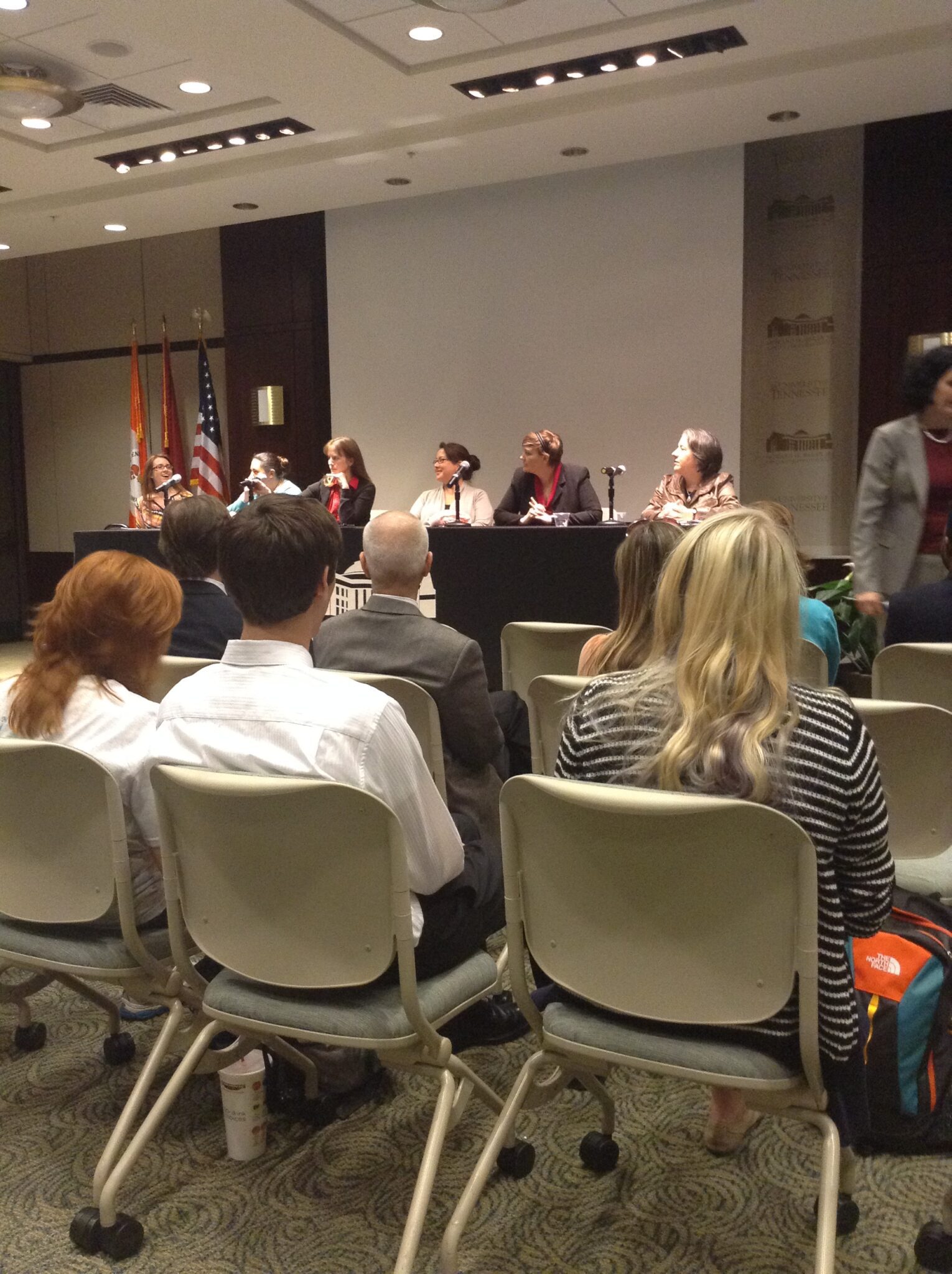Discussion offers different perspectives on women, politics
A roundtable was held at the Howard Baker Center Auditorium on Thursday, April 10, discussing women in politics. Guest speakers included Knoxville Mayor Madeline Rogero, Melanie Hughes (University of Pittsburgh), Tracy Osborn (University of Iowa), Jana Morgan (UTK), Leslie Schwindt-Bayer (Rice University), and Sarah Fulton (Texas A&M), all discussing reasons why women are just now starting to rise in politics. One reason used by almost every speaker was because women are more risk-averse, thus the women encourages all who are interested in politics to get involved now.

Mayor Madeline Rogero speaking to audience.

On Thursday, April 10, the “Women in Politics” round table was held at the Howard Baker Center Auditorium and featured a discussion on the current state of women in the political arena.
Members of the round table included Knoxville Mayor Madeline Rogero, Sarah Fulton, a professor at Texas A&M, Melanie Hughes, professor at the University of Pittsburgh, Jane Morgan, a UT professor, Leslie Schwindt-Bayer, a professor at Rice University and Tracy Osborn, a professor at the University of Iowa. Each speaker had a different perspective to offer on this subject.
Fulton, Osborne and Schwindt-Bayer focused on explaining the under-representation of women in U.S. politics.
One of the issues is that women are more risk-averse and will withdraw if there is a possibility of losing, said Fulton.
Osborn attributed it to another reason. She said some women’s policies don’t always match one political party, making it harder to identify with the people.
Schwindt-Bayer discussed the statistics of women being less corrupt than men, saying that the corruption gender gap is based on higher risks of electoral reliability.
“The consequences for women, because they are political newcomer, tend to be much stronger for when they do something wrong.”
Local and international examples of women in politics were also given.

Mayor Rogero talked about her life in the political community, growing from Knox County Commission to becoming the first female mayor in all four major Tennessee cities. Rogero said that she never would have run for County Commission if it wasn’t for two individuals who told her to run.
Morgan and Hughes discussed female legislatures around the world.
Rwanda is the only country to have majority female legislatures; one of the main reasons female legislature numbers differ is because of gender quotas, said Hughes.
Morgan referred to gender quotas as being a partial reason why females have grown from holding less than 10 percent to more than 20 percent in the Latin American legislature since the 1990s.
The speakers agreed that women need to start taking more risks. “You don’t actually have to be waiting until you’re in your late 30s or early 40s to run for office,” said Hughes. “There are opportunities for young women out there to run for political office.”
“It’s not that a lot of women have run and lost,” said Rogero, “But mostly I think not enough get on the ballot.”
Edited by Maggie Jones

